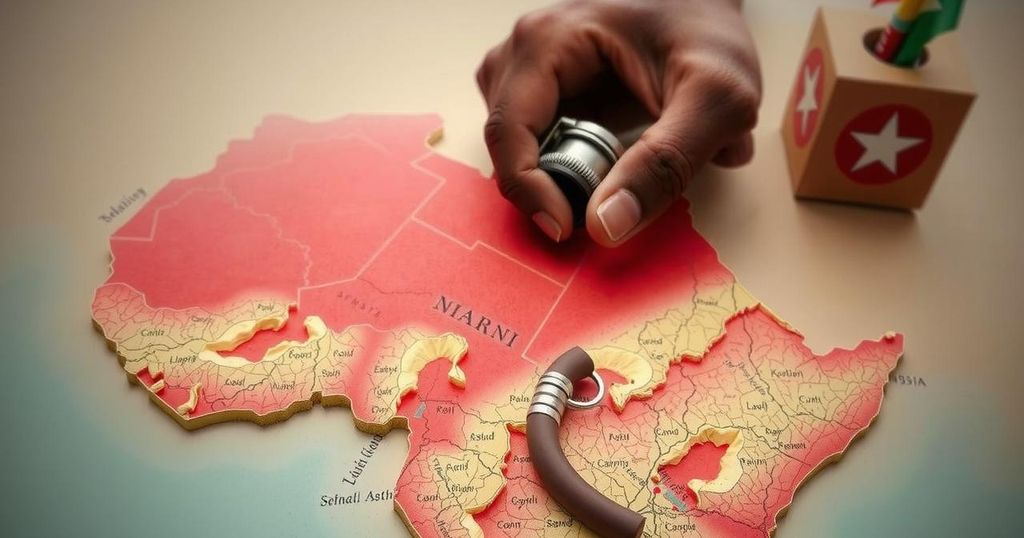Ethiopia accuses Somaliland’s security forces of involvement in recent violent clan conflicts in the Somali region, leading to significant casualties. Despite claims that the engaged individuals are non-governmental forces, Ethiopian officials assert evidence of military intervention. A meeting between high-level security officials from both nations aimed to address these escalated tensions and emphasized the need for peaceful conflict resolution.
Ethiopia has leveled accusations against the Somaliland government’s security apparatus for its alleged complicity in clan conflicts within Ethiopia’s Somali region. This assertion was made during a security meeting held in Jigjiga, where officials from both nations convened to address the ongoing disputes that have recently escalated into violent confrontations. Reports indicate that skirmishes between two Somali clans have erupted in the Yoale kebele near the Somaliland border, resulting in numerous casualties, including the death of Harshin woreda’s security commander.
Tensions have increased during the past few weeks as a mere dispute over grazing lands transformed into lethal exchanges. Eyewitness accounts reveal that Somaliland troops are suspected of participating in the recent violence following the death of the commander, resulting in further injuries to local security forces. Approximately 50 civilians and around 30 police officers have either died or sustained injuries in these clashes, alongside significant destruction of property and vehicles.
While Somaliland officials contend that those involved in the fighting are not government forces but rather aligned with clan interests, Ethiopian authorities claim to possess substantial evidence implicating the Somaliland military acting under the guise of civilians. A senior Ethiopian official indicated that the cross-border force was notably large and well-armed.
In light of these events, a meeting was called in Jigjiga, presided over by President Hussein Hashi, with participation from high-ranking officials of Somaliland’s military and internal security. The head of the Ethiopian Federal Police emphasized the need for amicable resolutions to clan disputes and urged Somaliland to withdraw its troops from Ethiopian territory, citing evidence of military involvement in clashes.
The uproar is speculated to be linked to a maneuver by former Somaliland President Muse Bihi Abdi, who recently resigned to facilitate a transition to new elections, despite claims of having ceased involvement. Meanwhile, the Ethiopian National Defense Forces have begun to reestablish control in the affected areas following these confrontations, signifying a shift in power dynamics along the border region.
The complexities of the Somali region of Ethiopia can be traced to longstanding clan rivalries that occasionally erupt into violence. These conflicts are often exacerbated by the involvement of external forces, as in the case of Somaliland’s alleged military involvement in recent skirmishes. Somaliland, which declared independence from Somalia in 1991, has historically maintained a relatively peaceful relationship with Ethiopia. Nevertheless, tensions can arise from territorial disputes and clan affiliations, particularly in border areas where population movements and resource competition are prominent.
In summary, tensions between Ethiopia and Somaliland have escalated due to allegations of military involvement in clan conflicts within the Somali region. As skirmishes have resulted in significant casualties and property damage, it is crucial for both governments to pursue diplomatic measures to resolve disputes amicably. Continued violence poses risks not only to local stability but also to broader regional relations between the two entities. Addressing the root causes of these conflicts, including clan rivalries and territorial disputes, will be essential for fostering lasting peace.
Original Source: capitalethiopia.com






